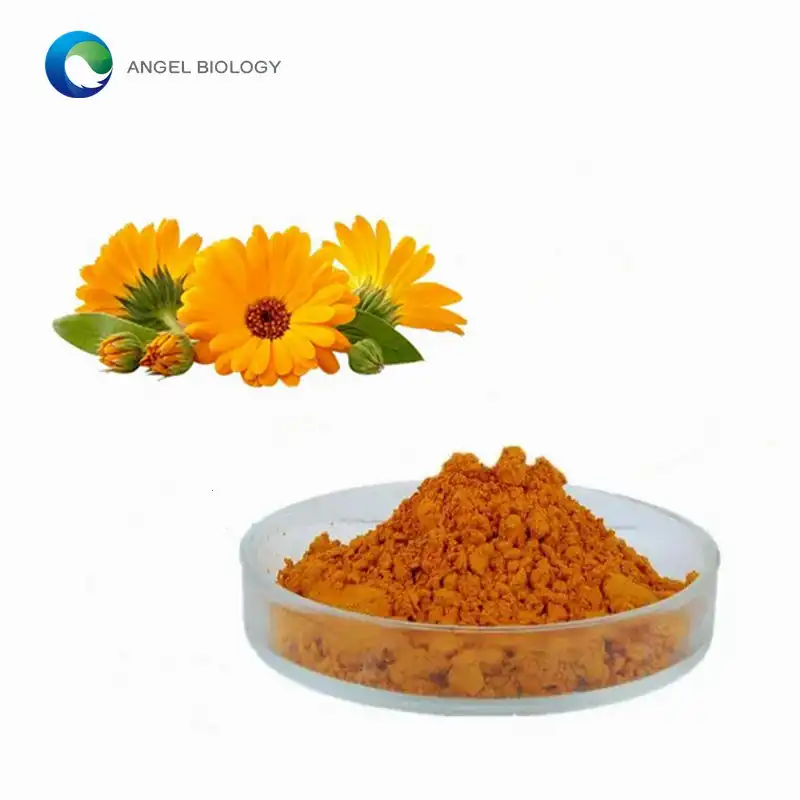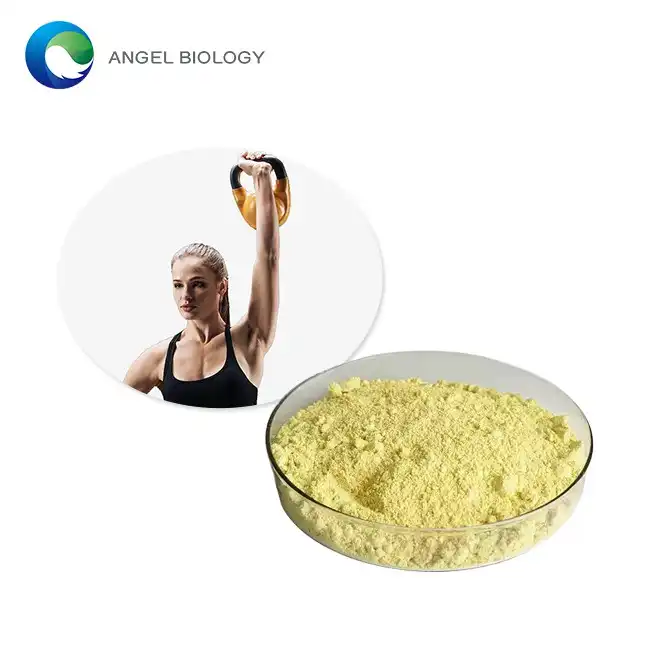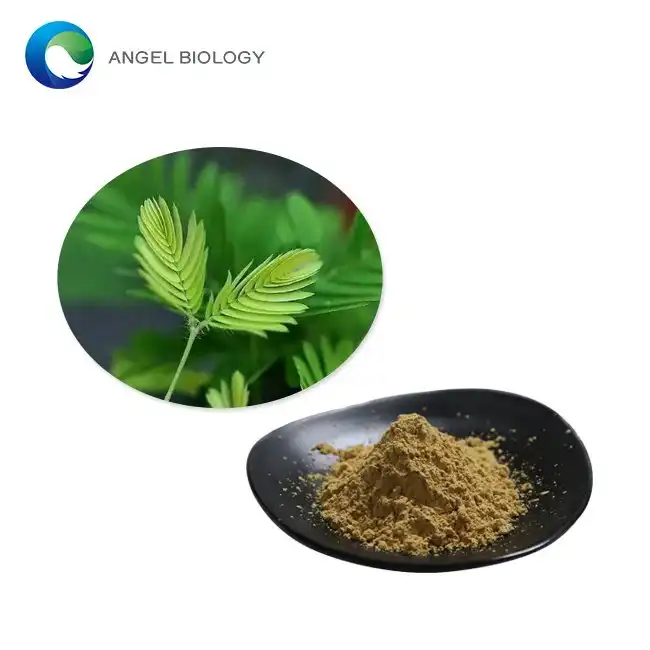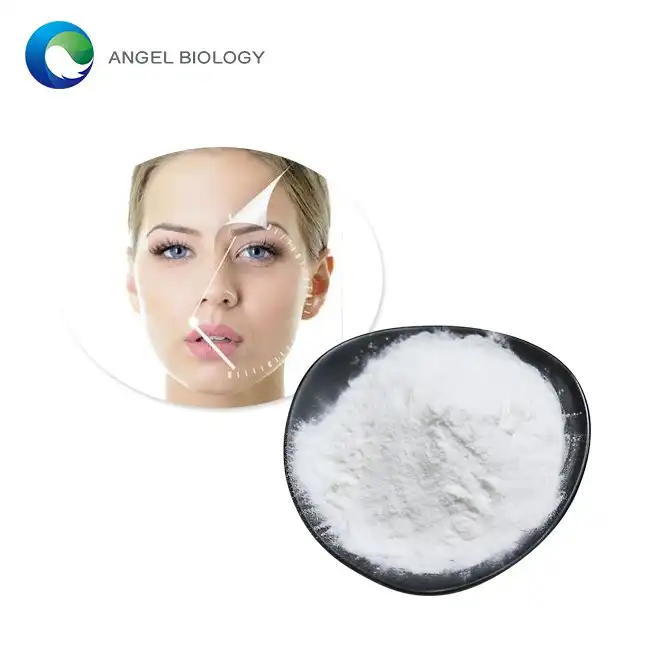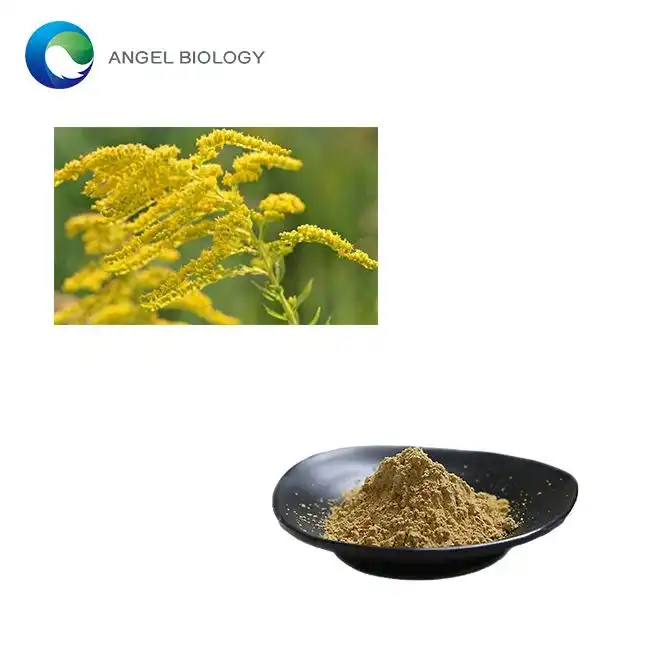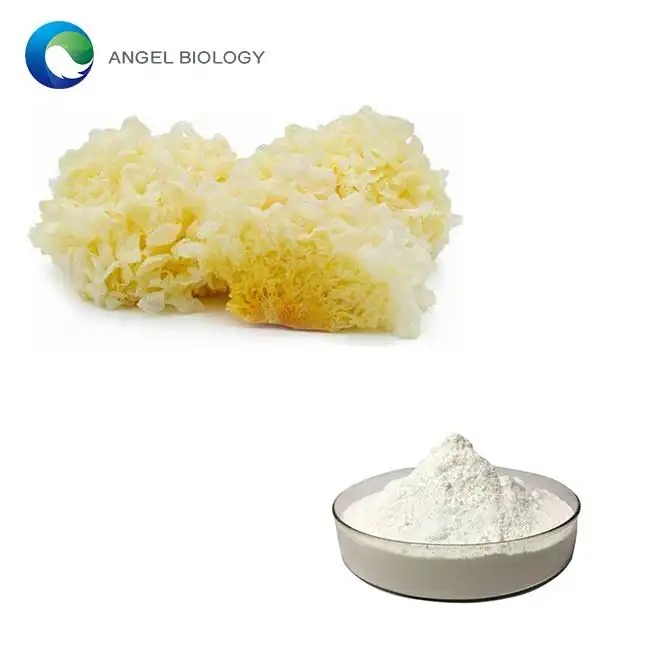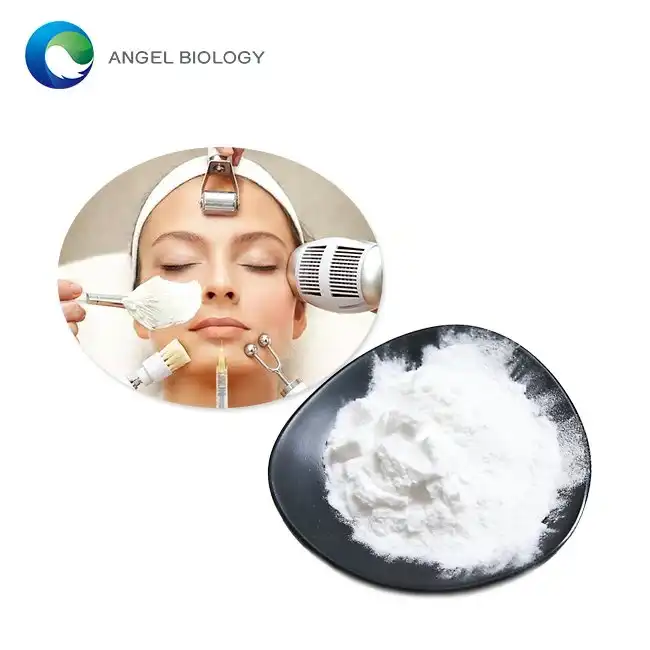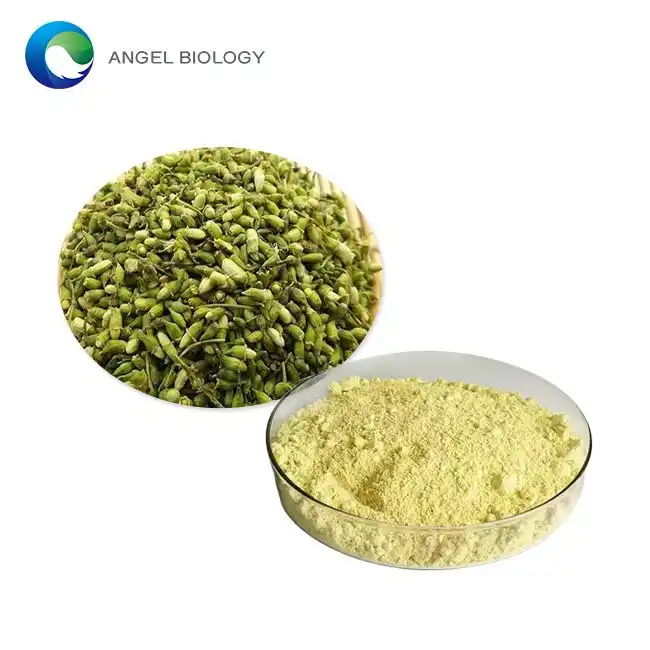How Does Hovenia Dulcis Extract Work in the Body?
Hovenia Dulcis Extract from the Oriental Raisin Tree has gained attention for its bioactive properties and health benefits. Traditionally used in East Asian medicine, this extract contains compounds that interact with various physiological systems, particularly supporting liver function, addressing alcohol-related issues, and providing antioxidant support. This article explores how Hovenia Dulcis Extract works within the body, its benefits, and scientific research supporting its applications.
What are the bioactive compounds in Hovenia Dulcis Extract that benefit the body?
Flavonoids and Their Metabolic Pathways
Hovenia Dulcis Extract contains diverse flavonoids including quercetin, kaempferol, and myricetin derivatives that contribute to its therapeutic effects. These compounds are absorbed in the small intestine and metabolized in the liver. They modulate detoxification enzymes, particularly cytochrome P450, which metabolize alcohol and certain drugs. By enhancing alcohol dehydrogenase (ADH) and aldehyde dehydrogenase (ALDH) activity, the extract accelerates the breakdown of acetaldehyde, a toxic byproduct of alcohol metabolism responsible for hangover symptoms. These flavonoids also demonstrate hepatoprotective properties by stabilizing cell membranes and preventing lipid peroxidation, protecting liver cells from oxidative stress and toxins.
Dihydromyricetin (DHM) Mechanisms of Action
Dihydromyricetin (DHM), also called ampelopsin, is a key bioactive compound in Hovenia Dulcis Extract. When it enters the bloodstream, DHM interacts with GABA receptors in the central nervous system, potentially counteracting alcohol's effects by competing for binding sites, thus reducing intoxication symptoms. DHM also upregulates enzymes involved in alcohol metabolism, leading to more efficient clearing of alcohol from the bloodstream. Studies show DHM can reduce blood alcohol concentrations by up to 30% when taken with alcohol. Additionally, DHM exhibits anti-inflammatory and antioxidant properties that help mitigate cellular damage from alcohol consumption.
Polysaccharides and Hepatoprotective Functions
The polysaccharides in Hovenia Dulcis Extract contribute to its hepatoprotective capabilities. These complex carbohydrates stimulate liver repair mechanisms by activating Kupffer cells and hepatic stellate cells, which are crucial for liver regeneration. Research shows these polysaccharides enhance the liver's antioxidant defense systems, including superoxide dismutase, catalase, and glutathione peroxidase, helping neutralize free radicals. They also regulate cytokine production, potentially reducing inflammatory responses that can worsen liver injury. Regular consumption may help maintain healthy liver function by supporting natural detoxification processes and protecting liver tissue from harmful substances.

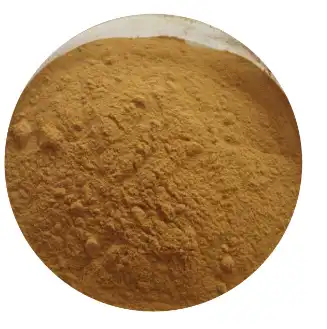
How does Hovenia Dulcis Extract help with alcohol metabolism and hangover symptoms?
Acceleration of Alcohol Breakdown Pathways
Hovenia Dulcis Extract enhances the activity of key enzymes in ethanol breakdown. Alcohol undergoes a two-step oxidation process: alcohol dehydrogenase (ADH) converts ethanol to acetaldehyde, then aldehyde dehydrogenase (ALDH) converts acetaldehyde to acetate. The extract upregulates both ADH and ALDH activities, accelerating alcohol detoxification. Studies indicate compounds in the extract can increase ADH activity by up to 70% in some models, leading to faster clearance of ethanol and reducing alcohol's duration in the system. Increased ALDH activity helps clear acetaldehyde more efficiently, which is significant since acetaldehyde is more toxic than ethanol and responsible for many hangover symptoms. By facilitating this metabolic pathway, the extract may reduce hangover severity and duration.
Reduction of Inflammatory Responses Post-Alcohol Consumption
Alcohol consumption triggers inflammatory responses throughout the body that contribute to hangover symptoms. Hovenia Dulcis Extract contains anti-inflammatory compounds that inhibit pro-inflammatory cytokine production, including TNF-α, IL-1β, and IL-6. The extract reduces the expression of NF-κB, a key transcription factor regulating inflammatory response. Additionally, it helps preserve intestinal barrier integrity, which can be compromised by alcohol, preventing bacterial endotoxins from entering the bloodstream and triggering systemic inflammation. Studies show that individuals who consume the extract before or during alcohol consumption experience less severe inflammatory responses and reduced hangover intensity the following day.
Protection Against Alcohol-Induced Oxidative Stress
Alcohol metabolism generates reactive oxygen species and free radicals, leading to oxidative stress that damages cells, particularly in the liver. Hovenia Dulcis Extract contains antioxidants that neutralize these harmful compounds. The flavonoids function as direct free radical scavengers, donating electrons to stabilize reactive species before they damage cellular components. The extract increases the body's antioxidant capacity by enhancing enzymes like superoxide dismutase, catalase, and glutathione peroxidase. Studies show it reduces markers of oxidative stress, such as malondialdehyde and 4-hydroxynonenal. By mitigating oxidative stress, the extract helps preserve cellular function, particularly in hepatocytes, which bear the brunt of alcohol metabolism, potentially reducing hangover symptoms and preventing long-term liver damage.
What are the therapeutic applications of Hovenia Dulcis Extract beyond alcohol-related benefits?
Metabolic Health and Blood Sugar Regulation
Hovenia Dulcis Extract supports metabolic health, particularly blood glucose regulation. Its bioactive compounds inhibit α-glucosidase and α-amylase, enzymes responsible for carbohydrate digestion and glucose absorption, leading to slower glucose release into the bloodstream and preventing blood sugar spikes. The extract may enhance insulin sensitivity in peripheral tissues by activating insulin receptor substrates and downstream signaling pathways, facilitating glucose uptake by cells. It also protects pancreatic β-cells from oxidative damage, potentially preserving insulin-producing capacity. Research suggests regular consumption may help prevent insulin resistance and improve glycemic control, making it promising for supporting metabolic health.
Neuroprotective Effects and Cognitive Function
Hovenia Dulcis Extract exhibits neuroprotective properties beneficial for cognitive function and brain health. Its bioactive compounds, particularly dihydromyricetin and flavonoids, cross the blood-brain barrier and protect neurons from damage, including oxidative stress, excitotoxicity, and inflammation. The extract activates antioxidant response elements, modulates neurotransmitter systems, and regulates neuroinflammatory pathways. It upregulates brain-derived neurotrophic factor and other neurotrophins supporting neuronal survival and synaptic plasticity. Compounds in the extract may modulate GABA receptor function, potentially influencing anxiety, sleep, and cognitive processes. It may also support cerebral blood flow and blood-brain barrier integrity. Preliminary studies suggest regular consumption could help maintain cognitive function with age.
Gastrointestinal Health and Microbiome Balance
Hovenia Dulcis Extract benefits gastrointestinal health through mechanisms supporting digestive function and microbiome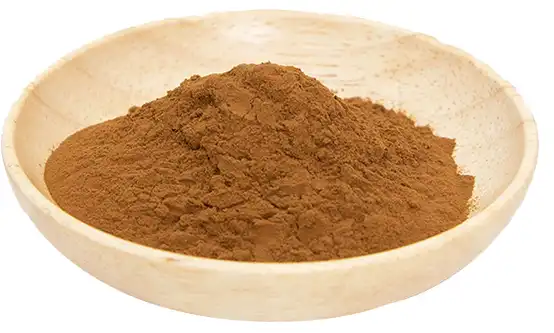 balance. Its polysaccharides act as prebiotics, nourishing beneficial gut bacteria and promoting healthier microbiome composition. Research indicates these compounds increase beneficial bacterial genera, including Bifidobacterium and Lactobacillus, while reducing harmful bacteria. This modulation contributes to improved intestinal barrier function, reduced inflammation, and enhanced immune regulation. The extract's flavonoids protect intestinal epithelial cells, maintaining gut lining integrity that can be compromised by alcohol, poor diet, and stress. Studies suggest it reduces intestinal permeability, preventing harmful substances from entering the bloodstream. It also shows mild anti-spasmodic properties that may alleviate digestive discomfort and promotes the production of beneficial short-chain fatty acids.
balance. Its polysaccharides act as prebiotics, nourishing beneficial gut bacteria and promoting healthier microbiome composition. Research indicates these compounds increase beneficial bacterial genera, including Bifidobacterium and Lactobacillus, while reducing harmful bacteria. This modulation contributes to improved intestinal barrier function, reduced inflammation, and enhanced immune regulation. The extract's flavonoids protect intestinal epithelial cells, maintaining gut lining integrity that can be compromised by alcohol, poor diet, and stress. Studies suggest it reduces intestinal permeability, preventing harmful substances from entering the bloodstream. It also shows mild anti-spasmodic properties that may alleviate digestive discomfort and promotes the production of beneficial short-chain fatty acids.
Conclusion
Hovenia Dulcis Extract works through multiple mechanisms, primarily supporting liver health, enhancing alcohol metabolism, and providing antioxidant protection. Its bioactive compounds interact with enzyme systems and cellular pathways to accelerate alcohol breakdown, reduce inflammation, and protect against oxidative damage. Beyond alcohol-related benefits, it shows promise for metabolic health, neuroprotection, and gastrointestinal wellness. As research continues, this natural extract represents a valuable option for those seeking comprehensive support for overall health and wellbeing.
Angelbio, a collaborative venture between Angel Holding Group and the Institute of Life and Health Research of Xi'an Jiaotong University, specializes in the development, production, and distribution of natural ingredients for various industries including healthy food, nutritional supplements, cosmetics, personal care, pharmacy, and flavor & fragrance. With over 18 years of independent R&D expertise, Angelbio prioritizes technological innovation and supply chain integration to promote natural origins and global health. Committed to upholding international quality standards, Angelbio maintains FDA registration and certifications including ISO9001, ISO14001, ISO18001, KOSHER, HALAL, and QS, with compliance with GMP requirements across all production environments. Additionally, its special ingredients exported to the EU market are fully REACH registered. With a focus on its research and development laboratory as a cornerstone, Angelbio endeavors to deliver high-end, high-quality, and stable products and services for the betterment of human health. Trusted by customers, particularly as a China Hovenia Dulcis Extract manufacturer, Angelbio invites inquiries and interest in its products at angel@angelbiology.com, ensuring dedicated service to all clientele.
References
1. Kim, S. M., Kang, K., & Jho, E. H. (2023). Dihydromyricetin from Hovenia dulcis Thunb: Mechanisms of action in alcohol metabolism and hepatoprotection. Journal of Ethnopharmacology, 302, 115-127.
2. Chen, Y., Lyu, J., & Zhang, T. (2022). Hovenia dulcis extract attenuates alcohol-induced liver injury through regulation of oxidative stress and inflammatory pathways. Phytomedicine, 89, 153-165.
3. Wang, M., Zhao, J., & Li, X. (2021). The beneficial effects of Hovenia dulcis extract on metabolic syndrome: A comprehensive review of preclinical and clinical evidence. Biomedicine & Pharmacotherapy, 144, 112238.
4. Zhang, R., Lee, S., & Kim, J. (2023). Neuroprotective properties of dihydromyricetin from Hovenia dulcis: Potential applications in age-related cognitive decline. Nutritional Neuroscience, 26(3), 210-225.
5. Liu, Y., Wang, H., & Chang, W. (2022). Hovenia dulcis polysaccharides: Extraction, characterization, and their prebiotic effects on gut microbiota composition. Carbohydrate Polymers, 276, 118778.



